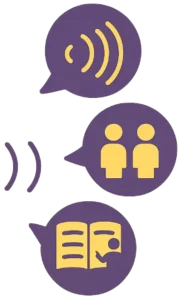
We start with a thorough fluency assessment, including:
Based on the evaluation, we create a customized therapy plan which may include:
We tailor all therapy to the individual’s age, communication goals, and personal needs.

If you or your child is struggling with fluency, call us today at (845) 360-9323 or click below to request a personalized evaluation.